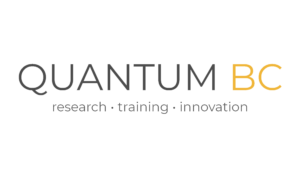SPOTLIGHTS
New phase of matter could protect quantum computers against errors
Potter and researchers at Quantinuum and the Flatiron Institute have demonstrated a new phase of matter that could help tackle a major challenge in the field, error-prone quantum computing. By targeting qubits with rhythmic laser pulses using Quantinuum’s trapped ion quantum simulator, the researchers realized a new phase of matter that could make qubits more robust and protective against errors. These findings represent early evidence that such an approach could offer a pathway towards error-free quantum computing in the future.
Quantum Computing as a Grand Challenge
Led by Salfi (hardware), Potter (algorithms) and Krems (machine learning), a group of researchers seek to draw inspiration from quantum matter problems to push the boundaries of Noisy Intermediate Scale Quantum (NISQ) computing. This Stewart Blusson Quantum Matter Institute (SBQMI) Grand Challenge interlaces concepts of quantum-matter such as phase classification to drive fault tolerance, machine learning techniques to optimize NISQ algorithms and hardware operation, and the development of an exclusive natively fermionic quantum simulator — readily deployable to electronic quantum matter problems.
A new quantum sensor based on ultra cold atoms
Developed by a UBC-BCIT collaboration (Kirk Madison, Roman Krems and Jim Booth), the self-defining particle pressure sensor provides the first primary and quantum definition of the Pascal. This represents a fundamental advance for vacuum and pressure metrology.
Record lifetimes in hole spins in silicon
Salfi recently discovered record coherence times in hole spins in silicon, a 10,000X improvement over previous efforts, using circuit quantum electrodynamics (cQED) architecture. This discovery is important because these qubits offer one of the potential routes to a large-scale universal quantum computer due to their electrical qubit manipulation and coupling properties.
Quantum technologies on ultracold molecules
Krems has developed theories, laying the foundation for novel quantum technologies based on controlled ensembles of molecules at extremely low temperatures.
World record for qubit storage at room temperature
Thewalt and Simmons won a 2013 Physics Worlds Top Ten Breakthrough of the Year award for demonstrating record-breaking quantum coherence lifetimes of nearly 40 minutes at room temperature, demolishing the previous record of a few seconds.
